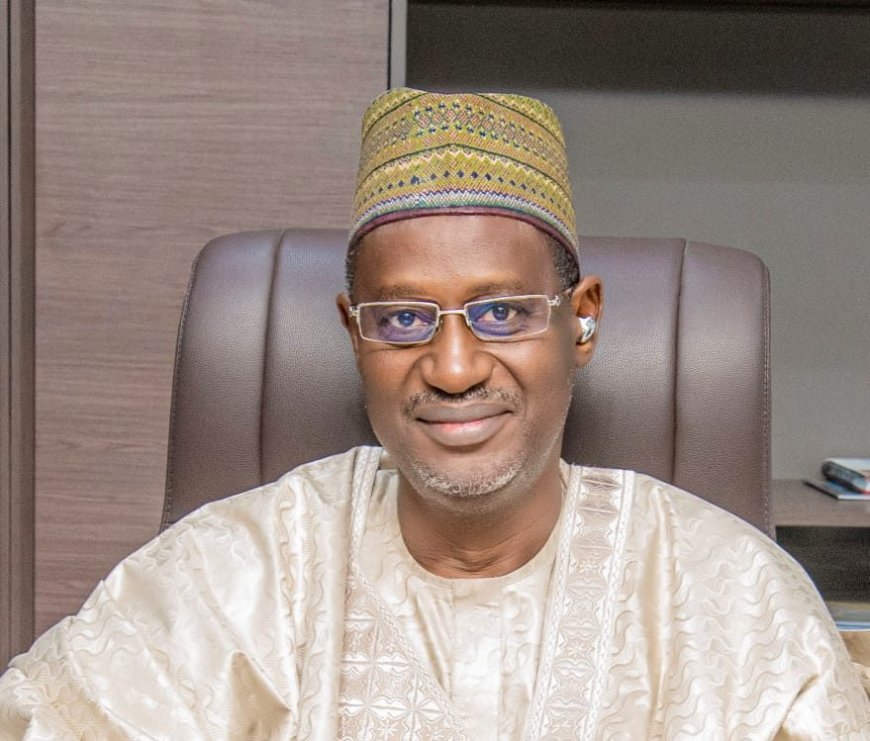FG, Kuwait Fund partner to tackle housing deficits

The Federal Ministry of Housing and Urban Development is exploring partnership opportunities with the Kuwait Fund for Arab Economic Development, focusing on infrastructure development to support affordable housing and sustainable urban growth in Nigeria.
This was disclosed in a statement signed by the Ministry’s Director of Press and Public Relations, Badamasi Haiba.
At a recent meeting between the Minister of Housing and Urban Development, Ahmed Dangiwa, and a delegation from KFAED, Dangiwa said, “Our partnership focus is affordable housing and promotion of sustainable urban development.”
He noted that the Ministry, under the leadership of President Bola Tinubu, is currently implementing several strategic programmes that require both financial and technical interventions.
One such programme, according to the Minister, is the establishment of building material manufacturing hubs across Nigeria’s six geopolitical zones, aimed at reducing the cost of building materials and creating job opportunities.
Dangiwa explained that each hub would occupy between 200 and 300 hectares of land and be fully equipped with critical infrastructure such as roads, drainage, electricity, and water.
“After we have done the site and services infrastructure, the spaces will be allocated for investors who want to build medium-sized factories, small-sized factories and large-scale factories that can produce roofing sheets, doors, windows, ceramic tiles and all the printing materials that we need in the locations,” he added.
He further presented the Centenary City project, located on 1,200 hectares along Abuja Airport Road, as another priority. He said funding is required to provide infrastructure that would attract investors to develop commercial, tourism, residential, and industrial zones within the district.
Dangiwa also highlighted the Ministry’s Urban Development mandate, which includes slum upgrades in rural and semi-urban areas. He stated that the initiative provides roads, sanitation, electricity, schools, and hospitals to underserved communities.
“The slum upgrade provides infrastructure like drainages, roads, sanitation, electricity, schools, and hospitals that would make life comfortable for the society,” he said, adding that “last year’s budget funded the development of 150 slums, with over 120 already completed.”
The Minister requested technical support from KFAED, especially in conducting and updating feasibility studies for key projects like the Centenary City.
“The Ministry already conducted one for the City but needs additional support,” he said.
Another key area of proposed collaboration is the Renewed Hope Social Housing Programme, which aims to build 100 housing units in each of Nigeria’s 774 local government areas, targeting low-income and displaced individuals.
He explained the affordability model for the scheme: “We plan to sell 70 per cent of the houses to the low-income earners who would pay only 30 per cent of their income, and the rest would be subsidised by the government, while the remaining 30 per cent of houses would be given to the zero-income, underprivileged, and displaced individuals.”
However, Dangiwa pointed out that the initiative is currently facing funding challenges.
Earlier in his remarks, the Director-General of the Kuwait Fund for Arab Economic Development, Wahad Al-Bahar, acknowledged the importance of the partnership and reaffirmed the Fund’s commitment to identifying collaborative opportunities with Nigeria.
“Our visit is to explore potential areas of collaboration and support,” he said, noting that the Fund was particularly interested in infrastructure and social development initiatives.
“These are some of the areas we can support, but I need to know if you have feasibility studies for the projects. We also have to consider the cost implications, and the studies need to be current,” Dr Al-Bahar emphasised.
He clarified that KFAED’s policy does not allow it to directly finance housing projects but stated that the Fund is willing to support related infrastructure such as transport, education, agriculture, and other social sectors.
Dr Al-Bahar disclosed that the Fund recently signed its first agreement in Nigeria with the Kaduna State Government for a project tagged “Reaching Out-of-School Children Programme”, describing the deal as a significant milestone.
He added that KFAED offers soft loans to governments like Nigeria under “favourable conditions, with a maturity period ranging from 20 to 25 years and low interest rates.”
“If you require assistance with developing proper studies, we are willing to help,” he assured.
Responding to the Minister’s presentation, Al-Bahar said the priority areas outlined by the Ministry are significant and expressed the Fund’s readiness to consider them, depending on the availability of updated and detailed feasibility studies.
Nigeria Partners with Kuwait Fund for Affordable Housing Pro









